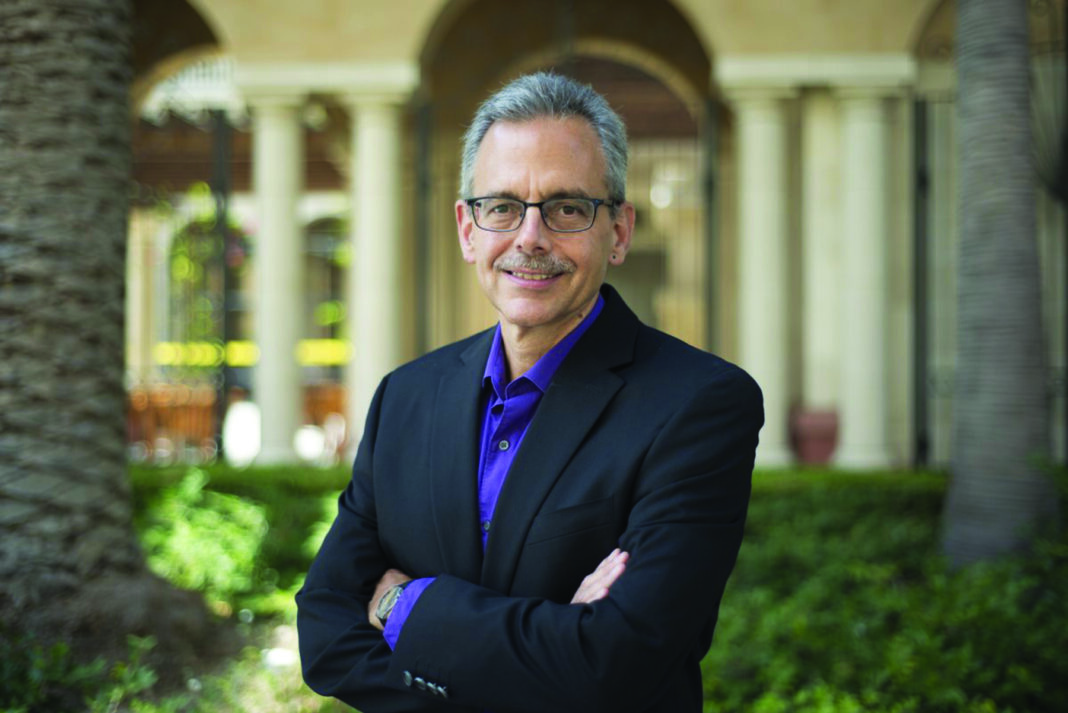The citizens of California seem to have a talent for pioneering one regrettable socio-political phenomenon after another, years before the country as a whole heedlessly tries the same thing. There are too many examples to catalogue: The embrace of Ronald Reagan, tax cut fever, alarmist immigration phobia and—most salient to today’s headlines—the election of a cartoonish Republican celebrity with zero government experience.
We Californians often react to the ensuing sense of déjà vu—much like a teenager whose dad has just discovered Vampire Weekend. But writer and sociologist Manuel Pastor thinks we’d be better off cooling it with the rolling eyes and air of miffed superiority.
“The reluctance to learn from California has been there for a while,” he says. “The country always looks to its founding [East] Coast, and not to its left coast. So, we in California can either talk about this in an arrogant fashion, or we can talk about this with the humility of someone who is in recovery. Because we are. This state is in recovery from its own addiction to allowing race to divide the polity, its own addiction to quick-fix schemes, its addiction to ‘Only I can fix this problem’—which was Arnold’s pitch as well as Trump’s. We can puff out our chest and brag about some wisdom we have, or we can share the lessons from some of the mistakes we’ve made with some humility.”
Pastor is the author of a new book titled State of Resistance: What California’s Dizzying Descent and Remarkable Resurgence Mean for America’s Future. It’s a deep dive into the political, social and cultural upheavals that have characterized California’s history since the middle of the last century, and how those upheavals have predicted what the U.S. at large was to experience later.
Pastor likes to call California “America fast-forward,” and asserts that the demographic anxiety, the economic uncertainty and the profiteering from political polarization that has characterized the Trump Era is essentially the story of California in the 1990s.
“Think about all that happened [in California in the ’90s]—Prop. 187, the elimination of bilingual education, the elimination of affirmative action,” says Pastor, a former UC Santa Cruz student who also taught at UCSC for a decade. “We thought that scapegoating immigrants would somehow recover the economy. It didn’t work. And it sounds a lot like what the nation is doing right now.”
State of Resistance was not conceived as a reaction to the election of Donald Trump, says Pastor. In fact, he had begun work on the book long before the 2016 presidential election, and was anticipating a Hillary Clinton presidency. “I started writing this book mostly because I was afraid that what happened when Obama won would continue to happen when Hillary won.” He’s referring to heavy Democratic Party electoral losses in state Houses during the Obama years.
After the 2016 election, Pastor’s calculus changed. Led by majority Democrats and Gov. Jerry Brown, California began to position itself in opposition to the Trump administration on a number of issues, and Pastor began to trace California’s recent transformation to a citadel of blue-state values. But he’s careful not to go overboard on the California Dream narrative, pointing to huge challenges the state faces in such areas as income inequality and the ongoing housing crisis.
Pastor stresses that State of Resistance is not only for Californians. It’s an American story, and as such, his book has been getting attention in states beyond California.
“It’s on people’s radar for a number of reasons,” he says. “When you look at the parallels between the U.S. today and California in the ’90s, it’s so obvious that people are really intrigued. And within the state, we’ve lived through this dramatic 25-year transformation. And people are excited to see the story being told in a way in which they can see themselves in it.”
Manuel Pastor, Bay Area Book Festival, Sat., April 28, 1:30pm, Veterans’ Memorial Building, Auditorium, 1931 Center St., Berkeley; baybookfest.org.






